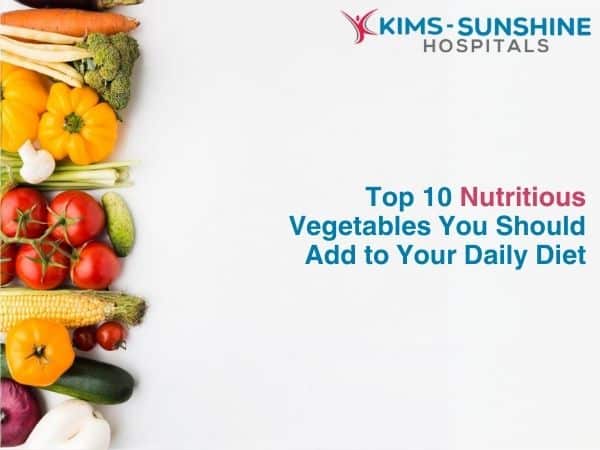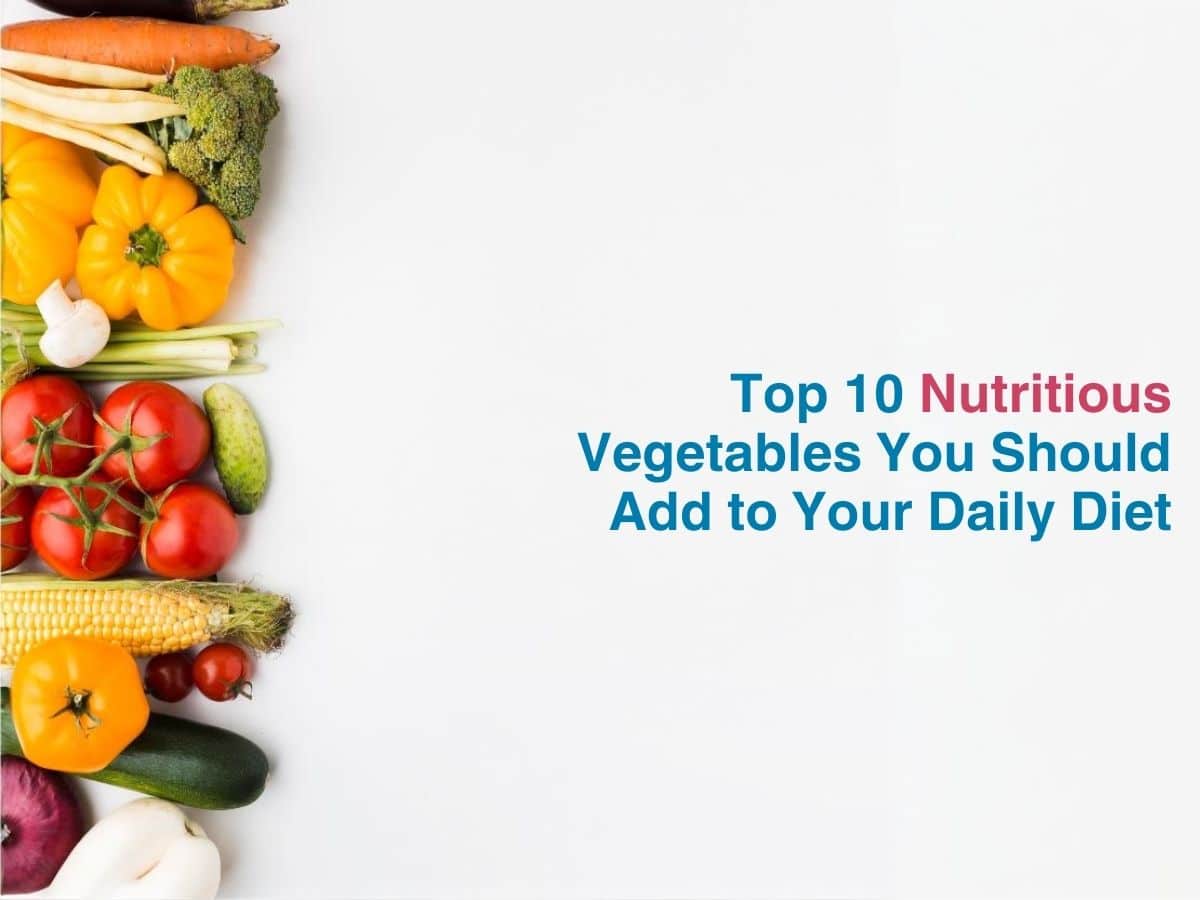
Top 10 Nutritious Vegetables you Should Add to your Daily Diet

Vegetables always evoke one of two responses- hatred or boredom while some of us just can’t seem to get enough of them. While it is understandable that eating veggies in the form of salads everyday can get exhausting and downright annoying, we are here to tell you that the following veggies do NOT need to be eaten as salads. Plus, they are super healthy and will provide you with tonnes of nutrients and benefits. Let’s begin!
Must-Have Vegetables For Optimal Daily Nutrition-
Here are our top 10 veggies that you should eat in different ways and in multiple servings every day!
- Our top favourite is Okra/bhindi/vendakkai or lady’s finger. Green in colour and pretty slimy when damp, people tend to hate this veggie more than like it. But we are here to tell you that it is way too nutritious to pass up. If you have an airfryer at home, then marinate it in spices and a teaspoonful of oil to make crispy, kurkuri bhindi. Kids will love it too. No slime and all yumminess only. Bhindi is very rich in Vitamins A, B6, C, K, E and has loads of minerals – copper, iron, calcium, manganese, magnesium, potassium, zinc and phosphorus respectively. The best part- has no cholesterol at all, with some healthy amounts of carbohydrates, mucilaginous fibre, minute amounts of protein and obviously water.
- Bitter Gourd/Karela/pavakka or bitter melon in many other places – people normally hate this veggie so much because it is bitter, they forget how nutritious it can be. You consume a mere 35 calories when you eat 100 grams of this wonder vegetable. It has lots of Vitamin A, E, riboflavin, thiamine, folate, vitamin C and folate, with generous amounts of minerals like zinc, magnesium and phosphorus. It has fibre too, which is good for your gut.
- Cabbage/Broccoli/Kohlrabi/Cauliflower – they are all from the cruciferous family and have high volumes of fibre in them. Apart from that, they contain vitamins and folate in them, with some minerals too. They are full of phytonutrients, polyphenols, sulphur compounds and glucosinolates- which are mostly anti-inflammatory and antioxidative in nature.
- Ridge gourd – Green and has a ridge-like appearance, this powerhouse is mostly water with lots of fibre and nutrients thrown in. The peel can be used to make tasty chutneys and thogayals, while the vegetable itself can be used in dals, or for curries and poriyals. They also have some Vitamins- A, C, B6 and zero cholesterol.
- Banana Stem – Having a slightly astringent aftertaste, this fibrous stem of the banana plant is well regarded for its health benefits. They have high levels of potassium, Vitamin B6 and function as a body coolant in the summer. It has natural diuretic properties, apart from being extensively used to deal with kidney stones.
- Methi/Fenugreek leaves – The leaves of the fenugreek plant are very flavourful. We all know it as kasuri methi. Use it fresh or dry it, it packs a flavourful wallop every single time. You can add it to everything- curries, dals, stir fries, parathas, chapathi, biryani, pulao etc. It is rich in Vitamin B, C, iron, phosphorus, fat and ofcourse fibre.
- Amaranthus/dhantu soppu/foxtail amaranth – greenish with purple red leaves, this green is prized for its earthy flavour imparted to curries and poriyals. They have lots of flavonoids, carotenoids, proteins, essential amino acids, fibre and minerals. They can be eaten in various stages of maturity.
- Moringa/drumstick leaves – These leaves have high lipid content in them and are rich in calcium, iron, Vitamin A, B, E and are very helpful during pregnancy. They have been hailed as a superfood – as it has seen to help the body in general- like for brain health, digestion, bone health, reducing inflammation etc.
- Pumpkins – orange or white- they are rich in fibre and carotenoids, which are antioxidative in nature. They have Vitamin A, potassium and fibre. It is especially good for the eyes.
- Starchy yam/arbi/sweet potato/tapioca – rich in carbohydrates, these contain lots of Vitamin C, B5, K and B6, along with magnesium, potassium, iron, folate and copper. They are good for the skin, hair and eyes.
Conclusion
We have listed out some of the top vegetables for your daily diet. Eating vegetables everyday should become second nature for you because of all the goodness they have to offer. They are mainly rich in soluble and dietary fibres and have plenty of vitamins, minerals and some protein in them too, without any fat or cholesterol to worry about (unless you talk about starchy ones which have carbohydrates in them and too much can cause you to gain weight). Including vegetables everyday will help you retain and improve heart health, functioning of the gut, kidneys and liver, while also helping you boost your immunity in the long run.
Frequently Asked Questions
How do different vegetables benefit my health?
Can you recommend some easy ways to incorporate more vegetables into my meals?
What are the best vegetables for weight loss?
Are frozen vegetables as nutritious as fresh ones for daily consumption?
How many servings of vegetables should I aim for each day?

Ms. Bhavana K.
M.Sc (Nutrition & Dietetics)
HOD – Chief Dietician






